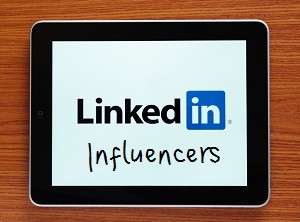“Influence” is hot shit these days. Linkedin  has been making a big deal about it; and it seems to be working, according to Dharmesh Shaw, a Linkedin Influencer:
has been making a big deal about it; and it seems to be working, according to Dharmesh Shaw, a Linkedin Influencer:
First of all, there’s the sheer power and reach of the platform. When I write on my personal blog (which is reasonably popular) an article will get roughly 5,000-10,000 views. If it turns out to be popular and is widely shared on social media, that number can spike to 50,000+ views. That’s pretty good. It makes my day when it happens.
But let’s compare that to how my content performs on the LinkedIn platform. I’ve posted 30 articles as an Influencer. The average number of views across those articles? 123,000!
The most popular article I’ve written has received 1.2 million views and 4,200 comments (whew!) That’s heady stuff.
And it’s also fun. I enjoy the opportunity to write about a broader range of topics. Obviously I write about issues that are important to startups, but I also get to write about building a company you love, andpersonal branding, and even extremely broad themes like the qualities of truly confident people.
I’m sure the same leverage also comes through publishing in Medium, Forbes, The Atlantic, HuffPo and other big Web publishers that pump lots of content. I’m happy for Dharmesh and other writers in those pubs. Hell, I may end up writing for one or more of them as well. Who knows. But meanwhile, as a writer, I have three problems with them.
First is that they’re all silos. This was unavoidable in in the physical world — every publisher needed their own platform; but on the Net and the Web, we already have a platform for all of us. We shouldn’t have to only write for the big publisher to be heard. This is why I’d rather write here, where I’ve got my own press and I’m free and fully in control, rather than in one of these big silos.
Second is that they don’t pay me. When one does, I’ll be glad to write for them, provided I get to write what I want, and not what somebody else wants to use me for (you know, as an “influencer”).
Third is noise. A lot of stuff published on these sites is damn good. But all of the publishers are pumping as much as they can in front of as many eyeballs they can for as many advertisers as they can. Which is cool (provided the advertising is of the old-fashioned brand kind, and not of the surveillance-fed kind—which, sadly, most of it is). But the volume of content alone tends to make everything into Snow on the Water. I also have little faith that the links won’t rot.
But here’s the bigger thing: being useful has more leverage, and more substance, than just being influential. In fact, I think being useful might be the most highly leveraged human virtue, other than love. Without it, we wouldn’t have civilization. And being useful makes you influential anyway.
So here are two ways to make yourself useful: tag everything you can and use permissive Creative Commons licenses. Lets start with the effects of these things, for me, and work back to causes.
Look at these links:
All of them feature a photo by me. I did nothing to put those there beyond tagging uploaded photos “anthropocene” and licensing them to only require photo credit (“Attribution CC BY“). So, whenever somebody writes about the Anthropocene Epoch (a durable topic that deeply matters), and wants to use a photo without any copyright friction, there is a high chance that one of my photos tagged “anthropocene” will illustrate the piece, with credit. Same thing happens with:
- Lithium mining
- Glaciers in Greenland
- Coal mines in the Powder River basin
- The Pat Tillman Bridge
- The Paris Catacombs
Photos generously licensed also tend to show up in Wikipedia, by way of Wikimedia Commons, which has a palette of graphic elements that writers can raid when editing Wikipedia articles. As of today 490 of my photos are in Wikimedia Commons. Many (perhaps most) of them also show up in Wikipedia, again with credit. I did nothing to put any of those photos in either Wikimedia Commons or Wikipedia. I simply made them useful.
It helps, of course, to have dozens of thousands of photos up on the Web, but that matters less than the motivation behind them — the same motivation one can put behind anything: make it useful.
Two more bits of advice: say interesting stuff, and link a lot. We can see the effects of both in Echovar‘s blog post, Mind the Gap: You are as You are Eaten. In it he takes something I said, then follows three links in it to three different blog posts, writing deeply about all of them in ways I had not anticipated.
Were those posts influential, useful or both? Probably both, but either way, useful came first.
Leave a Reply